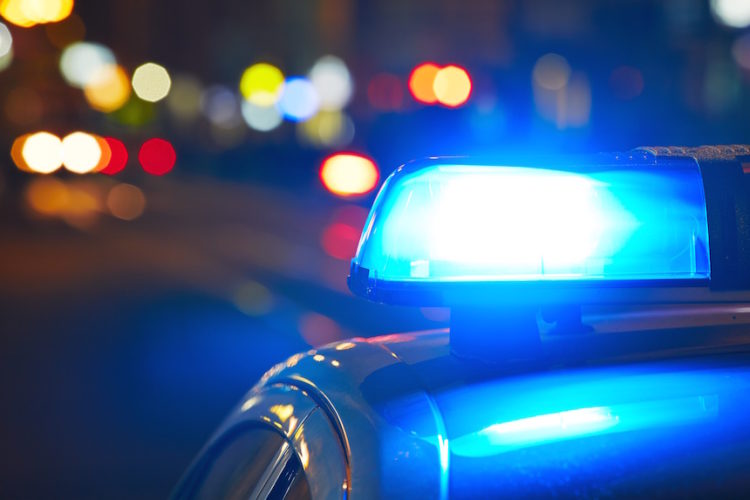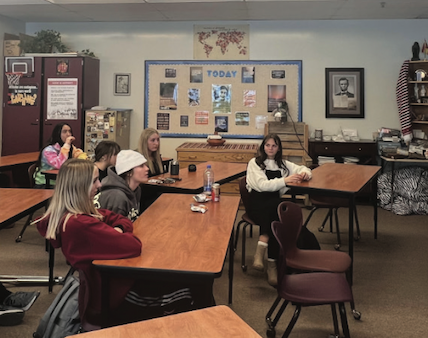By Shane Sanderson, Morgan Hughes and Seth Klamann
Casper Star-Tribune
Via- Wyoming News Exchange
CASPER – State public health orders issued in response to the coronavirus pandemic can be prosecuted in court, but an exemption to the rules makes it unclear whether criminal prosecution would be possible if people gathered for a house party.
The question arose this week after Casper leaders said a health care worker attended multiple house parties before testing positive for the virus. The partygoers and the worker’s roommate — also a health care worker — are now in quarantine.
District Attorney Dan Itzen on Friday said that an exemption for private residences in a statewide order banning gatherings of 10 or more people means he likely could not charge partygoers for violating a public health order on that basis.
Although violations of separate quarantine orders can be prosecuted, it is unclear if they are applicable in this case.
State and county officials said Friday they did not know if the health care employee – whose roommate worked at Wyoming Behavioral Institute – was under an already-existing order to quarantine. By Wednesday, health officials had connected 22 cases of COVID-19, the respiratory disease caused by the novel coronavirus, with the institute.
Cases connected to WBI have also traveled across county lines: The Wyoming Health Department announced Friday that two patients tested positive for the coronavirus following their transfer from WBI to the Wyoming State Hospital in Evanston.
Quarantine orders, which largely direct people to stay at home, are legally enforceable and punishable by a $100 fine or 6 months in jail, said Itzen and Natrona County Attorney Eric Nelson.
Such orders – which state health authorities can issue as a component of contact tracing, a method of determining how patients may have contracted COVID-19 – are among a handful of enforcement tools available to law enforcement in connection with public health guidelines aimed at limiting the spread of the virus.
The quarantine orders issued in Natrona County, a blank example of which Nelson provided to the Star-Tribune, provide a space for officials to note why the health department believes the person named might have been exposed to the coronavirus. It goes on to direct the person to remain at their home except to seek medical care or spend time outside on their own property.
Individual orders also require the person to avoid close contact with non-household members and direct them to notify the department if they develop one of four symptoms of COVID-19.
The form states the order is expected to last for two weeks but remains in place until the department no longer suspects a person of having the disease.
Kim Deti, the Wyoming Health Department spokeswoman, said Friday that when a person has been identified as positive for COVID-19, staffers issue the person a quarantine order.
The department then calls people who have been in close contact with the patient and issues them quarantine orders.
People who have been in contact with the patient –“depending on the situation” – can also be recommended for testing, she said.
In addition to violation of individual quarantine orders, law enforcement can cite people with a misdemeanor – punishable by $100 fine or six months in jail – for violation of any of the three public health orders issued by state officials, Itzen and Nelson said.
Those orders – issued and then renewed by Gov. Mark Gordon and State Health Officer Dr. Alexia Harrist – direct a large portion of businesses to close to the public and individuals to avoid congregating in groups of 10 or more.
The order limiting gatherings to nine people, however, specifically exempts gatherings at private residences.
It is not yet clear if any citations have been issued in conjunction with the state orders. Itzen has said that court schedules mean his office does not immediately learn about such citations.
Police agencies, meanwhile, said that they had found people generally responsive to the state orders.
On Friday, a sheriff’s spokesman said that the agency aimed not to enforce the state’s directives punitively but to educate people who are in violation of Harrist’s orders. Sheriff’s Lt. Bob Nelson said Friday afternoon that the agency had directed patrol deputies to first inform people they are in violation of the three general orders. If the agency again responds to a violation, Nelson said, deputies would then issue citations.
The sheriff’s lieutenant said, though, that responding deputies would not likely know if a person had been issued an order to quarantine and would be unlikely to be able to cite individuals for a violation of those orders.
Earlier this week, Mills Police Chief Bryon Preciado said by phone the same day that his agency had only provided information regarding the order, to which he said residents were receptive.
Evansville Police Chief Mike Thompson said the same day that he had not issued any directives to officers regarding the health orders.
He said in an email Wednesday that the town had not experienced a significant number of violations of the order and that prosecution could be difficult.
“Last I had heard there was some conflicts about the prosecution, and I have not heard back if it has been resolved,” Thompson said. “Until the lawyer folks make it clear about how to handle violations, we are not going to issue any directives.”
Although the Casper City Council considered earlier this week an ordinance that would have allowed police to cite people in municipal court for violations consistent with the doctor’s orders, the council killed the ordinance and tabled the issue. City officials indicated the ordinance would be consistent with state health orders.
However, draft language for the ordinance did not include an exemption for private residences.
City Manager Carter Napier said on Friday that the exclusion of such an exemption was unintentional. The city manager said he had received varied opinions about the ability to enforce quarantine orders, the violation of which Napier said was of a greater risk to the city than people gathering in groups.
A newly drafted ordinance, which Napier anticipates coming back before the City Council, would provide clarity to law enforcement, he said. What that will entail is as yet unclear.
“There’s been a myriad of opinions about that whole thing, and that’s the problem,” the city manager said, explaining the role a local ordinance would play.
At Tuesday’s council work session, Police Chief Keith McPheeters said that he had received conflicting legal advice regarding enforcement of the public health orders.
The chief said via a video feed that when a person is suspected of infection it is unclear if officers can legally require a person to quarantine.
“We lack the ability to require them to stay in any place or to self-quarantine at home. We lack the ability to carry that out whatsoever,” McPheeters said. “And currently this situation did not provide guidance for officers that are on the front lines of trying to do the right thing to protect the community from known threats. We don’t have the tools that we need.”
A police spokeswoman on Friday said that she would have to request legal guidance before responding to a series of Star-Tribune questions seeking clarification of the limitations McPheeters referenced.
In a memo sent last month to the agency, McPheeters called for officers to aggressively pursue unspecified risks to public health.
“Any criminal act surrounding the obstruction of public safety and public health measures, theft of critical supplies, or similar conduct, should result in immediate arrest, incarceration, and zealous prosecution,” said the police chief in a directive modifying some of the the agency’s policies.






